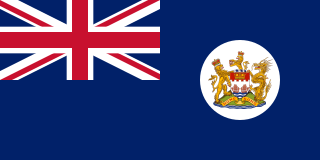
Under the Basic Law, the Hong Kong Special Administrative Region is exclusively in charge of its internal affairs and external relations, whilst the Government of the People's Republic of China is responsible for its foreign affairs and defence. As a separate customs territory, Hong Kong maintains and develops relations with foreign states and regions, and plays an active role in such international organisations as World Trade Organization (WTO) and the Asia-Pacific Economic Cooperation (APEC) in its own right under the name of Hong Kong, China. Hong Kong participates in 16 projects of United Nations Sustainable Development Goals.

The United Democrats of Hong Kong was a short-lived political party in Hong Kong founded in 1990 as the united front of the liberal democracy forces in preparation of the 1991 first ever direct election for the Legislative Council of Hong Kong. It self-proclaimed as the first political party in Hong Kong. The party won a landslide victory by sweeping 12 of the 18 directly elected seats in the 1991 LegCo elections which shook the political landscape of Hong Kong. In 1994 it was merged with another pro-democracy party Meeting Point to form the contemporary Democratic Party.

The transfer of sovereignty over Hong Kong, commonly known as the handover of Hong Kong, was the transformation of control over the United Kingdom's then colony of Hong Kong, pursuant to which it ceased to be a British Dependent Territory and became instead a special administrative region of the People's Republic of China on 1 July 1997. The returned territory comprised Hong Kong Island and the Kowloon Peninsula, which were respectively ceded to Britain in 1842 and 1860, as well as the New Territories, which were leased for 99 years from 1898. The transfer was arranged to coincide with the expiration of this lease on the previous day, 30 June 1997.

Maria Tam Wai-chu, GBM, GBS, CBE, JP is a senior Hong Kong politician and lawyer. She is a member of the Committee for the Basic Law of the National People's Congress Standing Committee (NPCSC) since 1997 and the chairman of the Operations Review Committee of the Independent Commission Against Corruption (ICAC) since 2015.
The transfer of sovereignty of Macau from the Portuguese Republic to the People's Republic of China (PRC) occurred on 20 December 1999. Macau was settled and governed by Portuguese merchants in 1535, during the Ming Dynasty. Portugal's involvement in the region was formally recognized by the Qing in 1749. The Portuguese governor João Maria Ferreira do Amaral, emboldened by the First Opium War and the Treaty of Nanking, attempted to annex the territory, expelling Qing authorities in 1846, but was assassinated. After the Second Opium War, the Portuguese government, along with a British representative, signed the Sino-Portuguese Treaty of Peking that gave Portugal sovereignty over Macau, on the condition that Portugal would cooperate in efforts to end the smuggling of opium.

The 1996 Hong Kong Chief Executive election was held on 11 December 1996 to select the first Chief Executive (CE) of the Hong Kong Special Administrative Region (HKSAR) which term started from 1 July 1997 after the Chinese resumption of the sovereignty of Hong Kong from the British rule. It was selected by the 400-member Selection Committee installed by the Government of the People's Republic of China (PRC). Tung Chee-hwa, a Shanghai-born Hong Kong businessman who was seen being favoured by Jiang Zemin, General Secretary of the Communist Party of China, was the ultimate winner of the election, defeating former Chief Justice Ti-liang Yang and tycoon Peter Woo with a large margin.

The British Consulate-General Hong Kong, located at 1 Supreme Court Road, Admiralty, Hong Kong Island, is one of the largest British Consulates-General in the world and is bigger than many British Embassies and High Commissions. It is responsible for maintaining British ties with Hong Kong and Macau.

The 1996 Hong Kong Provisional Legislative Council election was held on 21 December 1996 for the members of the Provisional Legislative Council (PLC). The 60 members of the PLC was elected by the Selection Committee, a 400-member body elected by the Preparatory Committee for the Hong Kong Special Administrative Region, a Beijing-appointed body which was responsible for implementation work related to the establishment of the HKSAR.

British Hong Kong denotes the period during which Hong Kong was governed as a colony and British Dependent Territory of the United Kingdom. Excluding the Japanese occupation during the Second World War, Hong Kong was under British rule from 1841 to 1997. The colonial period began with the occupation of Hong Kong Island in 1841 during the First Opium War. The island was ceded by Qing dynasty in the aftermath of the war in 1842 and established as a Crown colony in 1843. The colony expanded to the Kowloon Peninsula in 1860 after the Second Opium War and was further extended when Britain obtained a 99-year lease of the New Territories in 1898. Although Hong Kong Island and Kowloon were ceded in perpetuity, the leased area, which comprised 92 per cent of the territory, was vital to the integrity of Hong Kong that Britain agreed to transfer the entire colony to China upon the expiration of that lease in 1997. The transfer has been considered by many as marking the end of the British Empire.
Lo Tak Shing, GBM, CBE, JP, also known as T. S. Lo, was a former president of The Law Society of Hong Kong, unofficial member of the Executive Council of Hong Kong, and member of the Legislative Council of Hong Kong. He was the first person to announce his intention to run for the new post of Chief Executive of Hong Kong in May 1996. However, he abandoned his bid in October 1996 to lobby for his allies, Simon Li Fook-sean, deputy director of the preliminary working committee of the preparatory committee who was running against Oriental Overseas boss Tung Chee-hwa, former Chief Justice Yang Ti-liang, Wharf chairman Peter Woo Kwong-ching and the chief shareholder Mu-sang Du Ching Lung Hua.

Meeting Point was a liberal political organisation and party in Hong Kong formed by a group of former student activists in the 1970s and intellectuals for the discussion for the Sino-British negotiation on the question of Hong Kong prospect in 1983. It was one of the earliest groups in Hong Kong that favoured Chinese sovereignty over Hong Kong but wanted a free, democratic and autonomous Hong Kong.
The Hong Kong Special Administrative Region Basic Law Consultative Committee (BLCC) was an official body established in 1985 to canvass views in Hong Kong on the drafts of the Hong Kong Basic Law.

The 1994 Hong Kong electoral reform was a set of significant constitutional changes in the last years of British colonial rule in Hong Kong before the handover of its sovereignty to the People's Republic of China on 1 July 1997. The reform proposal was carried out by the last governor Chris Patten to largely broaden the electorate base of the last three-tiers elections in 1994 and 1995:

The Federation of Hong Kong and Kowloon Labour Unions established in 1984, is the third largest trade union in Hong Kong next to Hong Kong Federation of Trade Unions and Hong Kong Confederation of Trade Unions, having 82 trade unions and more than 60,000 members in total. The federation was established in 1984.

Simon Li Fook-seanGBM was a Hong Kong senior judge and politician.
Qiao Xiaoyang is the former chairman of the Hong Kong SAR Basic Law Committee of the 11th National People's Congress.
The Hong Kong Special Administrative Region Basic Law Drafting Committee (BLDC) was formed in June 1985 for the drafts of the Hong Kong Basic Law for the Hong Kong Special Administrative Region (HKSAR) after 1997. It was formed as a working group under the National People's Congress. The Drafting Committee had 59 members, of whom 23 were from Hong Kong and 36 were from Mainland, mostly the PRC government officials. The Drafting Committee was dominated by Hong Kong businessmen with a share from different social sectors. The decisions of the Drafting Committee on the political structure and legal system of the HKSAR had a great impact on the politics of Hong Kong today.

The Central Coordination Group for Hong Kong and Macau Affairs is an internal policy coordination group of the Central Committee of the Communist Party of China and the State Council of the People's Republic of China, reporting to the Politburo, in charge of supervising and coordinating Beijing's policy towards the Special Administrative Regions of Hong Kong and Macau. The Group is the highest de facto body for China's policy towards Hong Kong and Macau.














